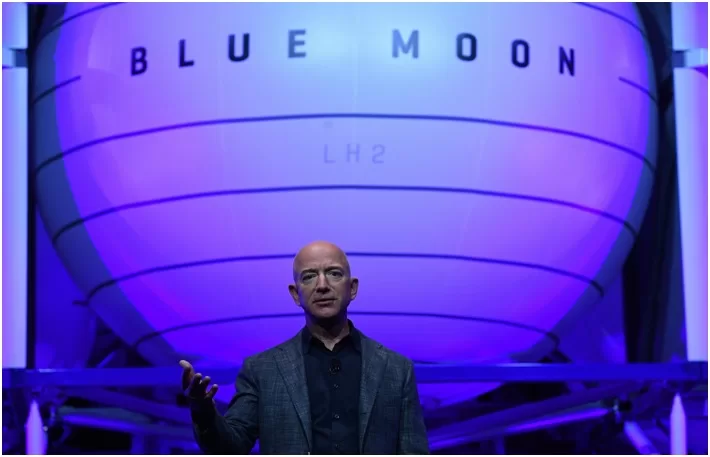Reconsidering Amazon’s Grand Space Ambitions

Highlights
- Project Kuiper’s goal: Establish a global satellite broadband network for high-speed internet from space, challenging competitors like SpaceX’s Starlink.
- Recent achievement: Successful launch of two prototype satellites, indicating progress in the project’s development.
- High costs: Projected expenses exceeding $10 billion raise concerns about financial feasibility and alignment with Amazon’s cost-cutting goals under CEO Andy Jassy.
- Competitive landscape: SpaceX’s Starlink leads with around 5,000 satellites, while Kuiper aims for 3,200, facing strong competition from other players like OneWeb and China.
- First-mover advantages: Early investments crucial; SpaceX claims reduced terminal costs, enhancing accessibility for customers.
- Blue Origin’s role: Bezos’s Blue Origin set to receive a substantial portion of funds, prompting conflict of interest accusations and a shareholder lawsuit.
- Ongoing costs: Replacement of low-orbit satellites every five years indicates continuous and potentially escalating expenses beyond the initial $10 billion projection.
- Potential overcapacity: Influx of global satellite networks raises concerns about overcapacity, reminiscent of challenges during the dot-com era’s fiber-optic boom.
- Space debris concerns: U.S. government report highlights potential hazards of space debris from unused satellites, adding complexity and risk to the project.
- Uncertain payoff: With possible overcapacity, ongoing costs, and potential hazards, the overall success of Project Kuiper remains uncertain, questioning Amazon’s continued involvement in this ambitious space race.
Amazon’s Project Kuiper, a visionary initiative aimed at creating a global satellite broadband network, is facing increasing skepticism. The brainchild of Amazon’s founder, Jeff Bezos, the project recently marked a milestone with the successful launch of two prototype satellites. However, with costs soaring beyond $10 billion and competitors like SpaceX’s Starlink racing ahead, the wisdom of continuing this venture is being called into question, especially under the leadership of current Amazon CEO Andy Jassy.
The allure of global satellite broadband has captivated tech tycoons, from Bezos to Microsoft‘s Bill Gates and SpaceX’s Elon Musk. Yet, this colossal undertaking comes with hefty expenses. To deliver fast and reliable connections, satellites must orbit close to Earth, requiring a significant number to ensure continuous coverage. Starlink, with approximately 5,000 satellites, has taken the lead, while Kuiper aims for 3,200, competing in a market where each new satellite enhances coverage and simplifies user terminals.

However, history warns of the perils of building communication networks in competition with established players. The dot-com era witnessed entrepreneurs investing heavily in fibre-optic cables and local systems, resulting in bankruptcies and poor returns. Amazon’s Kuiper, while not an existential bet for the trillion-dollar company, raises concerns with its earmarked spending exceeding $10 billion, conflicting with Jassy’s cost-cutting agenda.
Adding to the complexity, Blue Origin, Bezos’s rocket company, is set to receive a substantial $2.7 billion share of the allocated funds, prompting a shareholder lawsuit alleging a conflict of interest. Given that low-orbit satellites require replacement every five years, the spending is likely to persist. Moreover, fierce competition looms, with companies like Eutelsat Communications’ OneWeb and China planning expansive satellite networks, potentially leading to overcapacity reminiscent of the fibre-optic boom.
The risk of massive overcapacity isn’t the only concern; a recent U.S. government report has highlighted the potential hazards of space debris. With floating graveyards of unused satellites posing a threat, the uncertain payoff and the risk of efforts burning up on reentry raise questions about the prudence of Amazon’s participation in this seemingly futile space race.
In conclusion, as Amazon’s Project Kuiper competes against well-established players and faces a landscape rife with uncertainties, reconsidering its trajectory might be the pragmatic choice. With a hefty price tag, potential conflicts of interest, and the specter of overcapacity and space debris, the dream of a space-based internet service may need to be grounded for the sake of fiscal responsibility and long-term sustainability.











































